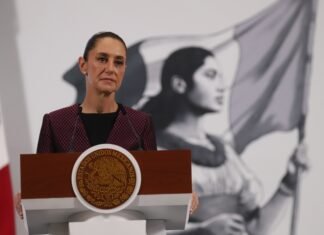On the occasion of Romania’s Army Day, a notable event unfolded in Carei where Prime Minister Ilie Bolojan faced criticism from a group of attendees who vocally expressed their discontent. Despite the negative reception, Bolojan appeared unfazed, stating, “I’m used to these situations; I don’t have any issues with them.”
The gathering, which aimed to honor the Romanian Armed Forces and commemorate their sacrifices and contributions to the nation, took an unexpected turn as some participants chose to voice their frustrations. This reaction from the crowd highlights the growing discontent among certain segments of the population toward government actions and policies.
During the ceremony, various officials and representatives delivered speeches celebrating the accomplishments of the armed forces. They emphasized the importance of unity and respect for those who serve the country, acknowledging both historical and contemporary challenges faced by the military. Such occasions are generally marked by solemnity, reverence, and a collective spirit of patriotism.
However, the disruptions during Bolojan’s speech illuminated the current political climate, characterized by tension and dissatisfaction among several societal groups. Many citizens are increasingly vocal about issues such as economic instability, corruption, and governmental accountability, leading to heightened emotions during public events.
Bolojan’s response to the disturbances can be interpreted as either a display of resilience or a sign of disconnection from the sentiments present among the populace. His assertion of being “used to these situations” suggests a perception that such protests are commonplace, almost expected in his role. Critics, however, may view this as an indication of a lack of empathy towards the grievances that citizens wish to express.
The Prime Minister’s comment might also reflect a broader trend within political circles, where officials often face backlash due to decisions perceived as unpopular or detrimental. In Romania and many countries worldwide, elected leaders frequently encounter public dissent, particularly during commemorative events meant to evoke national pride.
The reception in Carei serves as a reminder of the importance of dialogue and understanding between government officials and the citizens they serve. It brings to light the pressing need for leaders to engage more meaningfully with constituents, addressing their concerns and fostering a sense of inclusion and representation.
In the wake of such incidents, it becomes crucial for political leaders to reassess their strategies in dealing with public opinion. Active listening, genuine outreach, and acknowledgment of the concerns raised by the populace can help bridge the growing divide between the government and the citizenry. Ensuring transparency and accountability in governance can also alleviate some of the frustrations expressed during such public events.
As Romania continues to navigate its socio-political landscape, moments like the incident at Army Day remind us of the delicate interplay between leadership, public sentiment, and the historical context within which a nation operates. Moving forward, creating an atmosphere of mutual respect and understanding can pave the way for more constructive dialogues and partnerships between the government and its citizens.






